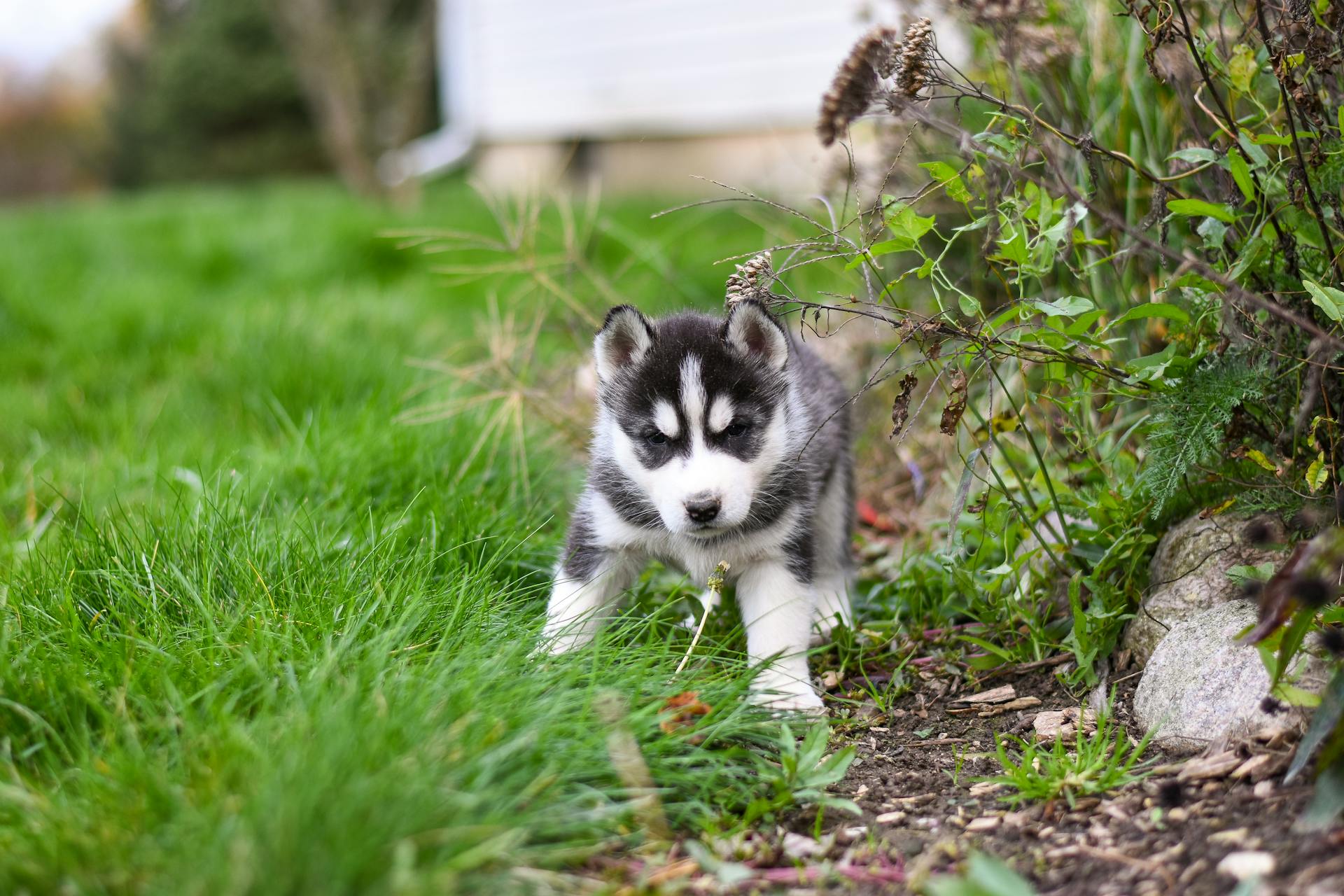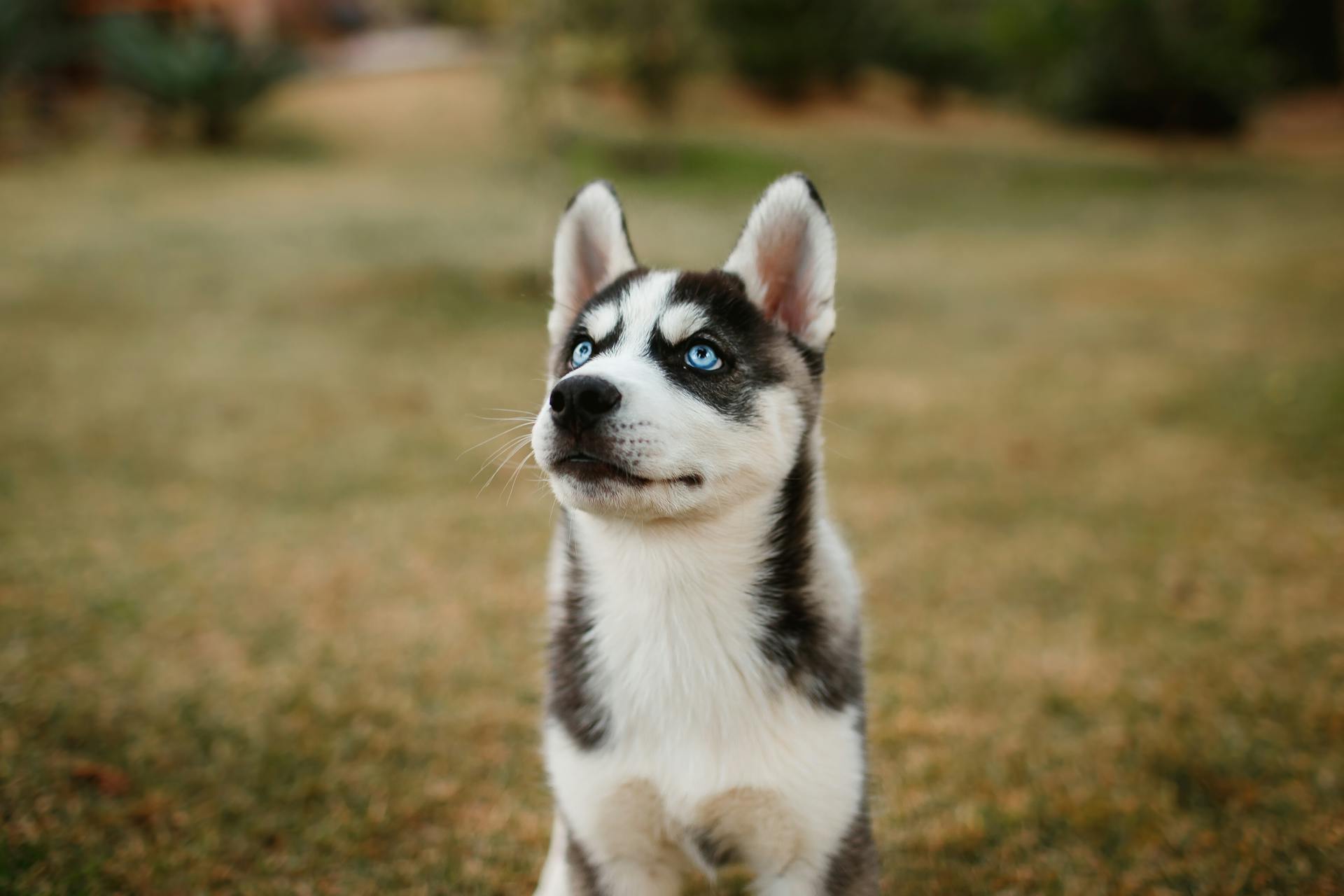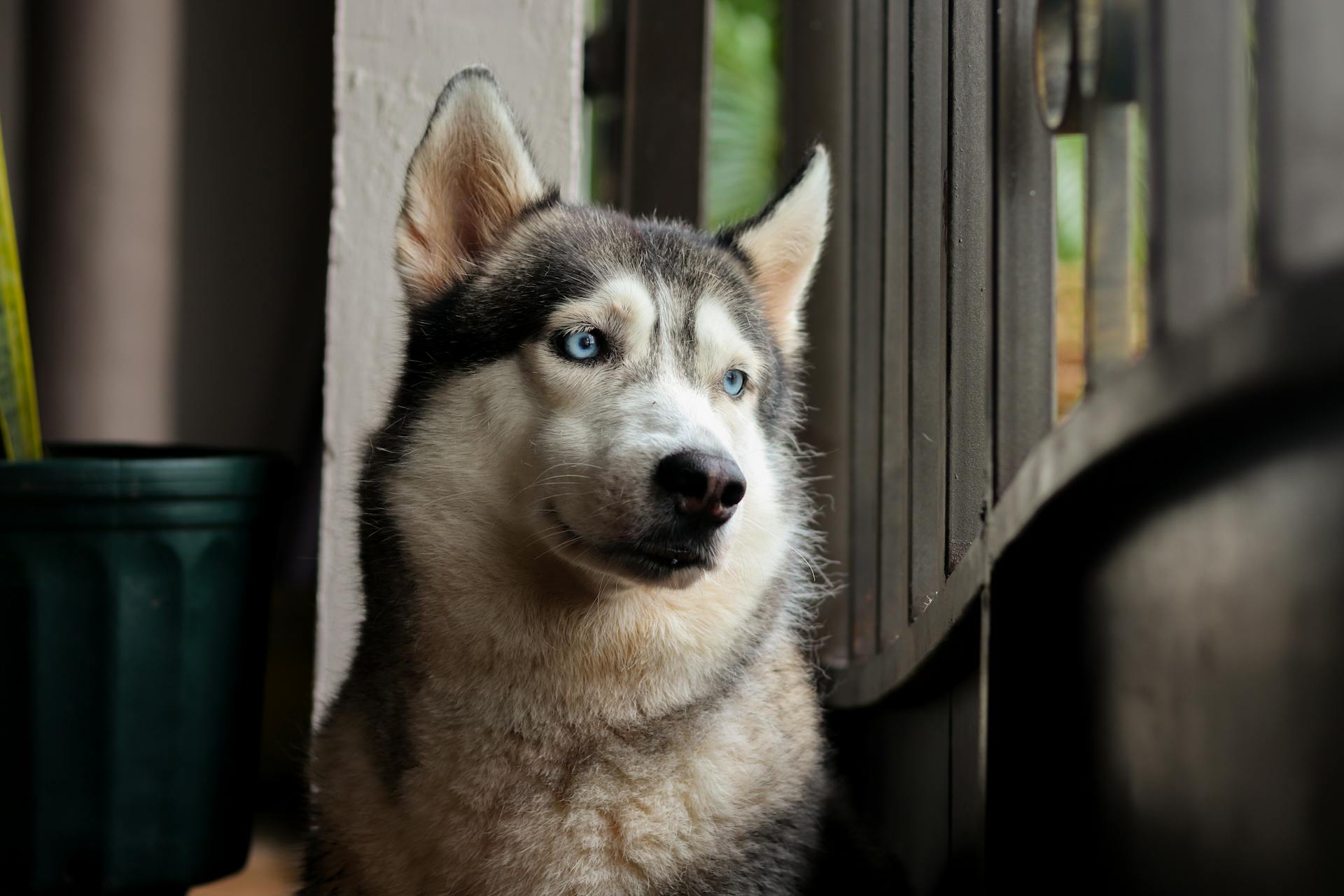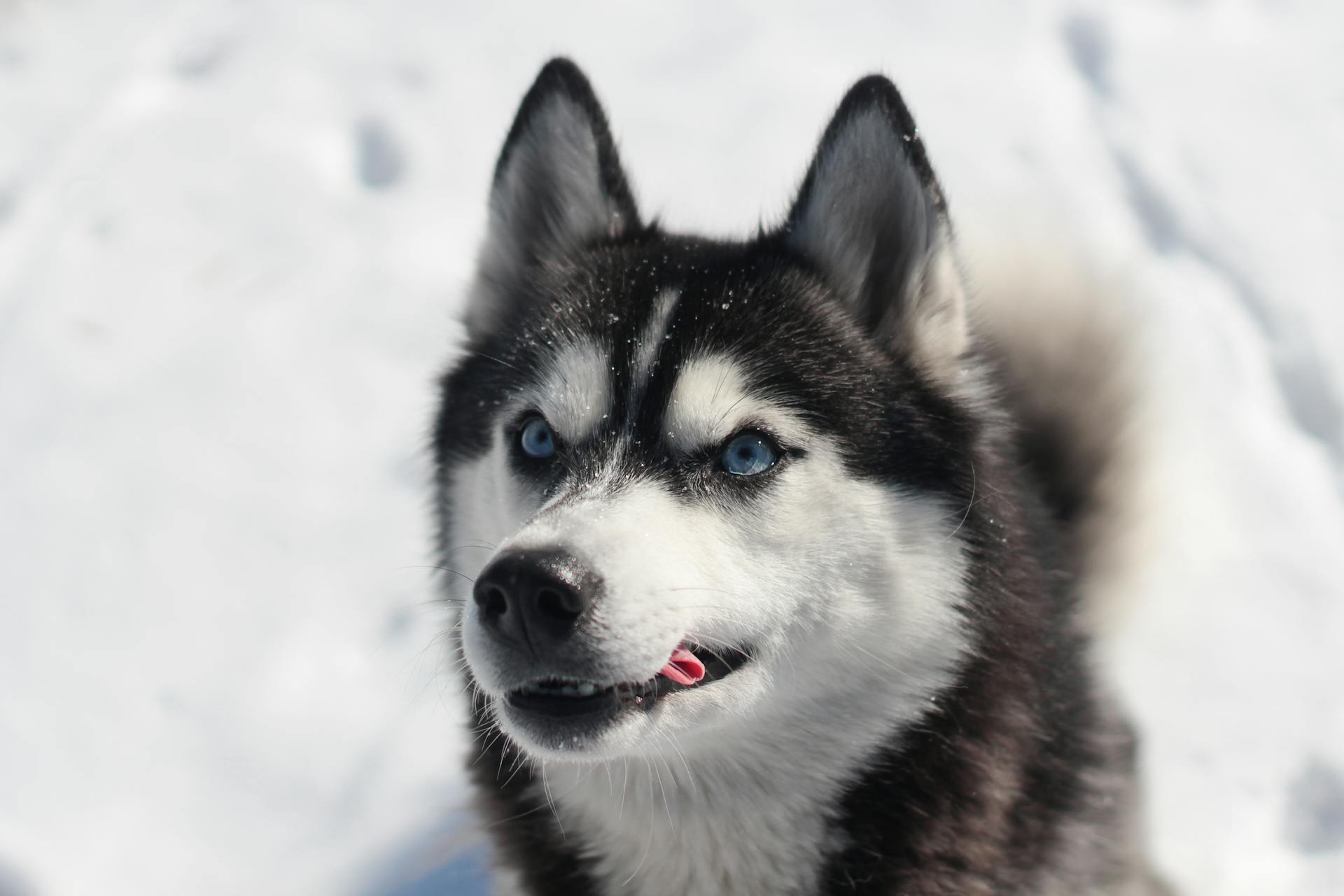
Siberian Huskies are often misunderstood when it comes to their hypoallergenic status. They shed heavily, producing a thick double coat that can trigger allergies in some people.
Their thick coat is made up of two layers: a soft undercoat and a coarser outer coat. This double layer sheds heavily, releasing loose hair and dander into the air.
Siberian Huskies require regular grooming to prevent matting and tangling of their fur. Daily brushing can help reduce shedding, but it's essential to note that it won't completely eliminate it.
While some people may find that their allergies are triggered less by Siberian Huskies than other breeds, it's crucial to spend time with one before committing to ownership to gauge any potential allergic reactions.
Understanding Allergies and Pet Dander
Pet allergies are often misunderstood, but the culprit is not the hair itself, but rather the tiny flakes of skin called dander. These dander particles are like tiny vehicles for the proteins that trigger allergic reactions. They can latch onto hair, making it problematic when it spreads around our homes.
Dander is more than just dried skin; it's a vehicle for these proteins, and due to its minuscule size, it can stay airborne for extended periods, making it easy to breathe in. Pet hair, while not an allergen, can contribute to spreading these proteins and gather other common allergens like dust mites or pollen.
Here are some common allergens found in Huskies:
- Shedding and Dander: Siberian Huskies are notorious shedders, particularly during seasonal changes.
- Saliva and Urine Proteins: Like all dogs, Huskies have proteins in their saliva and urine that can cause allergic reactions.
- Environmental Allergens: Huskies can pick up environmental allergens like pollen, grass, mold spores, and dust on their fur.
- Dust Mites: Huskies can spread dust mites, which can trigger allergic reactions in sensitive individuals.
What Causes Allergic Reactions?
Allergies to pet dander can be a real challenge for many people. The culprit behind these allergic reactions is a protein called an allergen, also known as a histamine, which is present in a dog's dander, saliva, and even urine.
This protein is what triggers the immune system to fight back, leading to symptoms like sneezing, itching, and swelling. It's not the dog's hair or dander itself that causes the allergy, but rather a specific protein in the dander.
There are six different types of proteins that dogs create, although only three of them were discovered recently. These proteins are found throughout the dog's body, but the skin, saliva, and urine are the most common sources of allergic reactions.
Recommended read: Hypoallergenic Dog Breed
Here are some common symptoms of pet allergies:
- Sneezing and Runny Nose
- Itchy and Watery Eyes
- Skin Rashes or Hives
- Respiratory Issues like Asthma
It's worth noting that some people may be allergic to only one protein, while others may be allergic to multiple proteins. In some cases, the protein Can f 5, which is only produced in a dog's prostate gland, can be a specific allergen that people are sensitive to.
What Makes a Dog Hypoallergenic?
Hypoallergenic dogs are often associated with low-shedding coats, but science suggests that shedding may not be the primary factor in spreading allergens.
In reality, all dogs produce dander, which is the primary culprit behind allergic reactions. This includes even the most popular hypoallergenic breeds, such as Poodles, which actually had the highest dander concentration level in one study.
Frequent bathing is often recommended for allergy sufferers, but surprisingly, it didn't make a difference in dander levels.
Swimming, however, was found to have an impact on dander levels, making it a potential consideration for pet owners with allergies.
Are Siberian Huskies Hypoallergenic?
Siberian Huskies are not hypoallergenic, but with the right management, you can still have one as a pet.
Their thick double coat sheds twice a year, requiring frequent brushing and maintenance. They also shed regularly throughout the year.
Histamines from their dander can attach to your body, making them difficult to get rid of, especially if you're allergic.
If you're allergic to dog dander, a Husky's semiannual heavy shedding can quickly become a problem.
You'll want to take steps to prevent issues, such as frequent vacuuming and regular grooming sessions.
Frequent brushing can help reduce the amount of loose hair and dander in the air, but it's not a foolproof solution.
Managing Allergies
If you're allergic to Siberian Huskies, don't worry, there are ways to manage your allergies and still enjoy the companionship of these beautiful dogs.
Regular grooming is essential to control shedding and dander, which are the main culprits behind allergic reactions. Brushing your Husky's coat outdoors can minimize the spread of loose fur and allergens inside the house. You can also bathe your dog regularly to reduce allergen levels on their skin and coat.
Using a high-quality air purifier equipped with HEPA filters can significantly reduce airborne allergens. Place the air purifier in the most frequented areas of the home to enhance its effectiveness.
Designating specific areas of the home as pet-free zones, such as bedrooms and living rooms, can create allergen-free spaces for allergy-prone individuals.
Washing your dog's bedding, toys, and other accessories regularly can help minimize allergen buildup. Use hot water to ensure thorough cleaning.
You can also use a vacuum cleaner with a HEPA filter to effectively capture and trap allergens from carpets, rugs, and furniture.
Limiting outdoor playtime during high pollen seasons can reduce the accumulation of outdoor allergens on your dog's coat.
Regular visits to the veterinarian can ensure your Husky is in good health, minimizing potential skin issues that can exacerbate allergies.
Here are some strategies to help manage allergies around Huskies:
• Use a high-quality air filter in your home
• Conduct regular house cleaning sessions
• Vacuum regularly to get rid of pet hair
• Keep over-the-counter allergy medication on hand for allergic reactions
• Consider choosing a dog breed that sheds less
• Ask your doctor about getting allergy shots to reduce attacks
• Wash your dog frequently
Husky Coat Care and Grooming
Siberian Huskies have a thick double coat that requires regular grooming to manage shedding and dander.
Brushing your Husky at least once a week can drastically reduce the accumulation of hair and dander around the home. This is especially important during shedding season.
A thorough brushing can also help remove loose hair and skin cells, which can become airborne or settle on furniture and clothing.
Bathing your Husky can help wash away protein allergens in saliva, which sticks to their fur when they self-groom.
Regular grooming can also help you check for skin issues that can exacerbate allergy symptoms.
A well-ventilated area is perfect for grooming sessions, allowing pet dander and hair to disperse outside rather than within your living spaces.
Regular brushing and bathing can help manage allergens, but they are not a cure-all for allergy sufferers.
Here are some tips for grooming your Husky:
- Brush your Husky at least once a week
- Bathe your Husky a few times a year
- Use a vacuum cleaner with a HEPA filter to capture and trap allergens from carpets, rugs, and furniture
- Consider using air purifiers and HEPA filters to reduce airborne allergens
- Keep your Husky's bedding and accessories clean by washing them regularly
Dietary Considerations and Allergen Reduction
Siberian Huskies can potentially trigger allergic reactions in sensitive individuals, but there are steps you can take to reduce allergen exposure and make living with a Husky more manageable.
A well-balanced and appropriate diet can significantly impact a Husky's coat health and reduce the amount of fur and dander they shed. Opt for high-quality dog food that is rich in essential nutrients and free from common allergens.
Including Omega-3 fatty acids in your Husky's diet can promote a healthy coat and reduce inflammation, potentially lessening the severity of allergic reactions. Fish oil supplements or foods containing fish like salmon can be beneficial.
Some dogs may be sensitive to specific ingredients, such as grains or certain proteins. If you notice any signs of food allergies in your Husky, work with your veterinarian to identify and eliminate the allergen from their diet.
Proper hydration is essential for overall health, including skin and coat health. Make sure your Husky has access to fresh, clean water at all times.
Here are some dietary considerations to keep in mind when owning a Husky:
Remember, each dog is unique, and what works for one may not work for another. Observe your Husky's response to different foods and make adjustments accordingly. If you have concerns about their diet or allergies, consult with a veterinarian or a professional animal nutritionist for personalized advice.
Conclusion
Siberian Huskies are not hypoallergenic dogs, producing allergens that can trigger allergic reactions in sensitive individuals.
Their thick double coats shed year-round, releasing course hair that sticks to fabrics and furnishings.
Allergies are a highly individualized issue, and some people may find they can manage their allergies around Huskies with proper grooming and cleaning practices.
However, there are no guarantees that a Husky will not cause allergic reactions, making it a challenging choice for allergy sufferers.
If you or someone in your household suffers from allergies and wants to bring a Husky into your home, consider your sensitivity to allergens and spend time with the breed beforehand.
This will help you understand the potential risks and manage allergen exposure, creating a more comfortable living environment for everyone.
Here are some key considerations to keep in mind:
- Husky Shedding: Huskies shed their course hair year-round, which can stick to fabrics and furnishings.
- Allergy Considerations: Individuals with allergies might face challenges with huskies due to the persistent shedding and pet hair found in their living environment.
Featured Images: pexels.com


